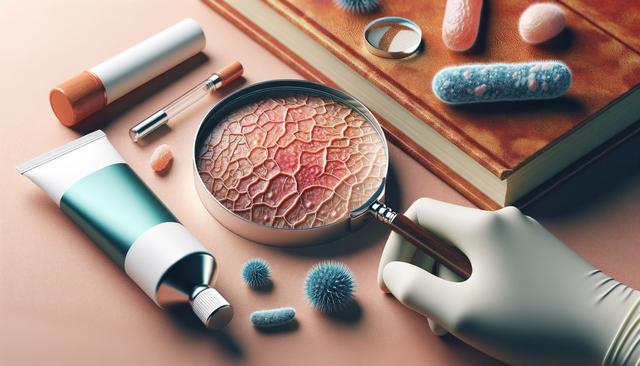What Is Eczema and Why Does It Itch?
Eczema, also known as atopic dermatitis, is a chronic skin condition that leads to dry, itchy, and inflamed skin. It can occur at any age and often develops in early childhood. The itching associated with eczema can be intense and persistent, making it difficult for individuals to sleep or concentrate. Understanding what stops the itching of eczema is key to managing the condition effectively. The itch is primarily caused by a combination of dry skin, inflammation, and an overactive immune response. When the skin barrier is compromised, irritants and allergens can enter more easily, triggering inflammation and itching.
People with eczema often experience flare-ups triggered by environmental factors such as soaps, detergents, pollen, stress, or temperature changes. To reduce these episodes, it’s important to identify and avoid personal triggers. Additionally, gentle skincare routines and the use of moisturizers are fundamental in managing dryness and reducing itchiness.
Immediate Relief for Eczema Itch
When a flare-up occurs, immediate relief for eczema itch becomes a top priority. There are several approaches that can help manage the symptoms and calm the skin. One of the most effective ways is to apply cool compresses to the affected area to reduce inflammation and soothe the skin. Over-the-counter hydrocortisone creams or doctor-prescribed topical corticosteroids are also commonly used to alleviate itching and redness.
Other strategies for quick relief include:
- Applying fragrance-free, thick moisturizers immediately after bathing
- Taking colloidal oatmeal baths
- Wearing soft, breathable fabrics like cotton to reduce irritation
- Keeping fingernails short to prevent skin damage from scratching
In some cases, antihistamines may be recommended to control the allergic response and reduce itching, particularly at night. Combining these methods can provide a multi-faceted approach to soothing eczema-prone skin.
Long-Term Management and Prevention
While eczema cannot currently be cured, long-term management can significantly reduce symptoms and flare-up frequency. For those wondering how to get rid of eczema forever, it’s important to understand that consistent care and lifestyle adjustments are the most effective strategies. Maintaining a routine that includes daily moisturizing, avoiding known triggers, and using gentle skin products is essential.
Preventive steps that can improve long-term outcomes include:
- Using a humidifier to maintain skin hydration, especially in dry climates
- Choosing hypoallergenic and fragrance-free skincare products
- Managing stress through mindfulness or relaxation techniques
- Following a dermatologist-recommended treatment plan
Some individuals also explore dietary changes, such as eliminating certain foods that may exacerbate symptoms, although it’s advisable to consult with a healthcare provider before making significant changes.
How to Make Eczema Go Away Fast
While there’s no guaranteed way to eliminate eczema overnight, there are practical steps that can help reduce symptoms quickly during a flare-up. Understanding how to make eczema go away fast involves a combination of immediate care and avoiding triggers. One of the first actions should be to ensure the affected skin is moisturized and protected. Emollient-rich creams and ointments create a barrier that locks in moisture and shields the skin from further irritation.
In addition to topical treatments, people can benefit from:
- Applying anti-inflammatory creams as prescribed
- Avoiding hot showers or baths, which can dry out the skin
- Staying away from harsh soaps and chemicals
- Using protective gloves when cleaning or washing dishes
For more severe cases, dermatologists may recommend phototherapy or prescription medications. These should be considered under medical supervision and as part of a broader treatment plan tailored to the individual’s needs.
When to Seek Professional Help
Managing eczema can often be addressed at home with appropriate care. However, there are times when professional guidance becomes necessary. If the condition worsens despite using home treatments or if the itching interferes significantly with daily life, a consultation with a dermatologist is recommended. This is especially true for individuals exploring how to get rid of eczema forever, as a tailored treatment plan can provide sustained relief and prevent complications such as infections.
Signs that require medical attention include:
- Persistent redness and swelling that doesn’t improve
- Cracking or bleeding of the skin
- Signs of infection, such as pus or increased warmth
- Repeated flare-ups that reduce quality of life
Doctors may perform allergy testing, recommend prescription treatments, or suggest lifestyle adjustments based on the type and severity of eczema. Early medical intervention can make a significant difference in long-term outcomes.




Leave a Reply